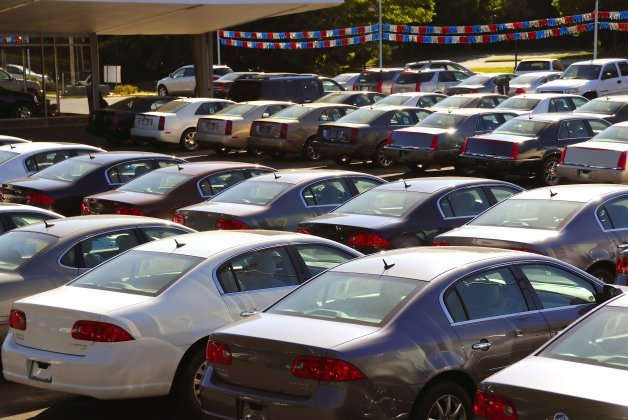Baby Boomers Now Buying More New Cars Than Their Children

A study by the University of Michigan Transportation Research Institute clearly says yes, but that's not the whole story, Bloomberg reports. Though young people are buying fewer new cars, baby boomers, the crowd born between 1946 and 1964, are buying more new cars.
People aged 55-64 had the highest rate of new-vehicle purchases in 2011, according to the study, and they've become the age group most likely to buy a new car. Just four years ago, the population aged 35-44 was most likely to buy a new car, which goes to show how much the auto industry and its customer base has changed since the recession in 2008. But the decline in miles driven by Americans started in 2004, according to another study by the University of Michigan, much of which has been related to lifestyle choices, such as urban living and public transit.
"The car was a phenomenon of the 20th century," says John Wolkonowicz, an automotive historian and former Ford product planner. Young people aren't flocking to buy used cars, either. The data of registered drivers in the US shows that they're not just avoiding new car purchases, there's a growing percentage of them who legally can't drive. In 2011, only 79 percent of drivers aged 20-24 had driver licenses, compared with 92 percent in 1983. Conversely, the percentage of the population aged 60-64 with driver licenses is 93 percent today, but was 84 percent in 1983.
So what can an automaker do? Marketing hasn't helped sway young people, as vehicles like the Honda Element, which was aimed at 25-year-olds, were bought more by baby boomers, says John Morel, a market researcher for Honda. "But your propensity to buy a car at 25 is roughly a quarter of what it is at 65," he relates. "By definition, very few cars sell in high volume to 20-somethings."
Related News


